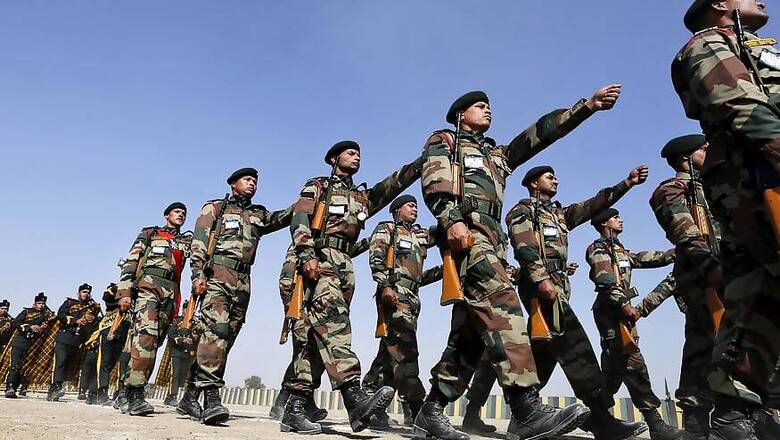
views
These are testing times for all leaders, from those heading the country to those running tiny companies. With the economy under severe strain, there would be enormous pressure on business leaders, big or small, because their future decisions will impact not only their survival but also of the hundreds and thousands who are employed by them.
Faced with crisis and uncertainty, we often dig into our past, to see if we had experienced a similar event, searching for answers in navigating through what appears to be an unchartered territory. My thoughts during this period of lockdown due to Covid-19 frequently go back to October 8, 2005.
I had recently been posted as the commander of a brigade responsible for the Line of Control (LoC) in the Uri sector of Jammu and Kashmir. It was little after 9.15 am, and I was wrapping up some work on my computer in the room before going to the office. Suddenly, a soldier from my staff rushed in, grabbed me by the arm without saying a word and dragged me outside.
My incredulity at the soldier’s behaviour turned to dread as the earth trembled, and the world crashed. In the one minute that the earthquake lasted, it devastated everything. Hospitals, office buildings, stores, living accommodation, residential houses, and bridges came down in a heap of rubble and dust. Landslides blocked all the roads connecting us to the outside world, communication links (except military radios) were snapped, and the Uri market was on fire.
The situation along the Line of Control was grim, with most of our living and fighting bunkers having collapsed, in some cases trapping soldiers under heavy concrete. The local population was equally affected, and within a few minutes, we had hundreds of injured civilians streaming into the Uri garrison, looking towards the army for help. Except for a few brave policemen (including an outstanding SDPO who lost his young child in the earthquake), the civil administration and health services were notable only by their complete absence. As the senior officer at the spot, I was in a daze.
Leadership is always highly contextual. An earthquake may appear different from the current pandemic, but some challenges for leaders in crises are also common — fighting fear, insecurity and loss. A few lessons that helped me tide over the 2005 earthquake may have some relevance.
Take that Decision
Dwight D. Eisenhower, a general during World War-2 and later the president of USA, said, "What is important is seldom urgent, and what is urgent is seldom important." In a crisis, the urgent and the important assault a leader together. Decision-making becomes difficult because no decision can be universally good. One example of this predicament was for how long we should dedicate our limited earth moving equipment towards the digging through rubble for individual survivors. The longer we did that, the greater the delay in opening up of roads for relief material required by thousands.
There were hundreds of similar situations that posed moral dilemmas. But decisions have to be taken. There is no time to delay, no opportunity to kick the decision upstairs, and procrastination can be fatal. It is my experience that in a crisis, people prefer quick decision-making over a more deliberate, slow process. All decisions may not necessarily be right, but a lack of decision is a sure route to failure.
There is no One-Man Army
In his book Leaders: Myths and Reality, General Stanley McChrystal writes about three myths of leadership. One of these is the ‘Attribution Myth’ in which we “attribute too much to leaders...neglecting the agency of the group that surrounds them.” At the time of the earthquake, there were less than half a dozen officers in my headquarters, but they were invaluable. If I had tried to supervise everything myself, I would have burned out.
Michael Jordan wisely says, “Talent wins games, but teamwork wins championships.” In a crisis, give your subordinates responsibility, tell them that you have faith in them, and they will surprise you with the results. My officers certainly did.
Don’t Ignore the Long-term
In the first few days after the earthquake, we were swamped with rescue efforts, treating the wounded, evacuating injured civilians and soldiers from remote areas, and providing medical supplies. One night, as I was returning from a crisis meeting, the first snowflake of the season fell on my arm. Although the snow was only a few millimeters, it brought home a grim reality. In two months, our posts along the Line of Control would be completely cut off by heavy snowfall, and most of these posts had no usable living accommodation. It was not easy at that time to move resources from alleviating the immediate suffering to something that appeared not so urgent. However, because we did divert resources to building shelters at forward posts, thousands of soldiers survived that winter.
In a crisis, the present can appear to overwhelm all else. But good leaders must also keep an eye on long-term objectives because an excessive focus on the present can sometimes jeopardise the future.
Defining Success and Declaring Victory
When coming out of a crisis, it is easy to clutch at small achievements to declare victory. It is not wrong to celebrate any success, but as we say in the army, you could win the battle but lose the war. It is, therefore, important for all business leaders to define success carefully. Is it merely in their market recovery, or in the nurturing of employees, or in the creation of an organisation that is shielded from future shocks? In the military we often ask as to how success is to be achieved – is it in winning the war or in winning the peace. Both these could require fundamentally different approaches.
The current pandemic is perhaps the biggest challenge that India has faced in the recent history. In this time of uncertainty, there is but one certainty – leadership will play a key role.


















Comments
0 comment